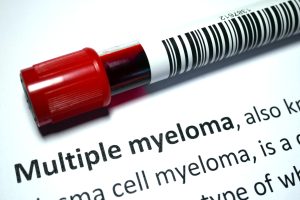
24 RCCA Physicians Named to 2025 Castle Connolly ‘Top Doctors’ List for Exceptional Cancer Care
A cancer diagnosis can be frightening. An individual may worry about how, or if, they will get better. The future becomes unclear and the strain
HIPAA Alert: Potential Data Breach Learn More
Questions on Oncology, Hematology and/or Infusion Clinical Services due to COVID-19 Crisis – CALL 833-698-1623
Important Information for Our Patients Regarding the Coronavirus.
RCCA Providing Area Cancer Patients with Access to Care During Coronavirus Outbreak
RCCA Offering Patients Virtual Visits During Coronavirus Pandemic
A cancer diagnosis can bring a wide range of emotions, from fear and stress to sadness and hope. These feelings are a natural part of the journey and may change over time. At Regional Cancer Care Associates (RCCA), we understand the emotional challenges that come with cancer and provide expert guidance and resources to support patients throughout their cancer treatments.
With more than 20 locations across New Jersey, Connecticut, Massachusetts, Maryland, and the Washington, D.C., area, RCCA ensures that high-quality cancer care is always within reach. While emotions can be overwhelming at times, acknowledging and addressing them is an important step toward maintaining overall well-being.

It’s common to struggle with accepting a cancer diagnosis. Denial can be a temporary coping mechanism, allowing time to process the situation. However, if it prevents patients from seeking necessary care, it may be helpful to speak with a healthcare professional for guidance.
Many patients with cancer experience anger—toward the situation, medical professionals, or even loved ones. These feelings often stem from deeper emotions such as fear or helplessness. Finding healthy outlets, such as talking with a counselor, engaging in relaxation techniques, or joining a support group, may help manage these emotions.
Patients often experience fear related to:
Becoming informed about your treatment plan at RCCA and discussing concerns with your oncology team can help reduce anxiety and provide a greater sense of control.
It’s natural to experience stress during cancer treatment, but prolonged anxiety may cause:
If stress becomes overwhelming, it may be beneficial to seek additional support.
While sadness is a normal response to cancer, persistent feelings of hopelessness, fatigue, or disinterest in daily activities could indicate depression. If these symptoms last for more than two weeks, consider reaching out to a mental health professional or a support network for help.
Some patients feel guilt related to their diagnosis, lifestyle choices, or the support they receive from others. Talking with a counselor or attending a support group can help process these emotions in a healthy way.
Many patients discover a renewed sense of appreciation for life. Spending time with loved ones, exploring new hobbies, or practicing mindfulness can foster feelings of gratitude and hope. Finding ways to stay engaged in meaningful activities can help improve overall well-being.
Patients may find it helpful to:
At Regional Cancer Care Associates (RCCA), we recognize that cancer affects both the body and mind. With more than 20 locations across New Jersey, Connecticut, Massachusetts, Maryland, and the Washington, D.C., area, RCCA provides expert oncology care while guiding patients to helpful resources for overall well-being.
For more information about RCCA’s comprehensive cancer treatment options, contact RCCA at 1-844-410-7301 or contact RCCA today.
Sources:
For more information or to schedule an appointment,
call 844-346-7222. You can also schedule an appointment by calling the RCCA location nearest you.

A cancer diagnosis can be frightening. An individual may worry about how, or if, they will get better. The future becomes unclear and the strain

Multiple myeloma (MM) is a rare type of blood cancer that often develops without early symptoms, making awareness of risk factors essential. Regional Cancer Care

“What happens next?” “Where should I go for treatment?” They are questions physicians often hear after informing a patient that they have identified potential cancer.

Regional Cancer Care Associates is one of fewer than 200 medical practices in the country selected to participate in the Oncology Care Model (OCM); a recent Medicare initiative aimed at improving care coordination and access to and quality of care for Medicare beneficiaries undergoing chemotherapy treatment.